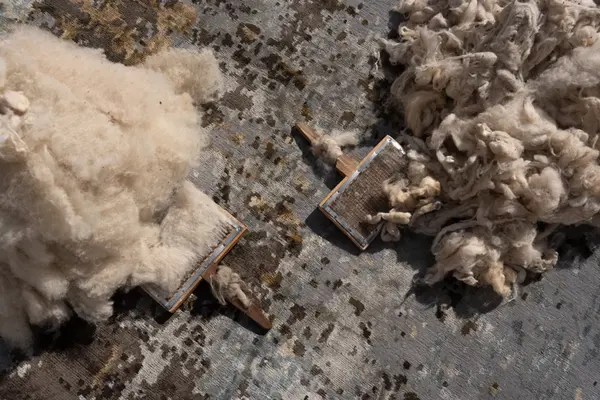The rug industry is a profitable niche with a steady demand for both traditional and modern designs. Whether you’re starting a rug business or expanding your current inventory, understanding how to navigate this market is key.
At NP Rugs, we bring over three decades of expertise in crafting and supplying high-quality rugs from Nepal. Our deep industry knowledge and proven reliability make us an authority you can trust to guide you in sourcing authentic, premium rugs and creating strategies that meet your business goals.By leveraging our experience, you can position your business for long-term success.
1. Understand Your Market
Before diving into the business, take the time to thoroughly research your target audience. Knowing what your customers want is key to sourcing the right products and crafting an effective sales strategy. Consider:
- Preferred Rug Types: Determine whether your audience leans towards handwoven, hand-knotted, or machine-made rugs.
- Design Styles: Identify popular trends, such as modern minimalist designs, vintage aesthetics, or traditional patterns inspired by cultural heritage.
- Material Preferences: Research whether your customers value high-end materials like wool and silk for their durability and luxury or prefer synthetic fibers for affordability and ease of maintenance.
To gather these insights:
- Visit local rug retailers and observe the best-selling designs.
- Attend industry trade shows, where you can interact with suppliers and learn about upcoming trends.
- Explore online marketplaces and analyze customer reviews to identify what buyers value most in their rug purchases.
Understanding your market ensures that you not only source the right products but also anticipate customer needs effectively, setting a strong foundation for your rug business.
Addressing Common Pain Points:
- Finding Reliable Suppliers: Many new businesses struggle with identifying trustworthy suppliers. Focus on building relationships with suppliers who have a proven track record and offer transparency in their production process.
- Managing Inventory: Overstocking or understocking can hurt your business. Start with smaller quantities to gauge demand and use inventory management tools to keep track of stock levels.
- Avoiding Counterfeit Products: Counterfeit rugs are a prevalent issue. Work with suppliers who provide authenticity certifications and verify their reputation through reviews and references.
2. Build Relationships with Reliable Suppliers
Finding trustworthy suppliers is crucial. Here are ways to source rugs:
- Attend Trade Shows: Events like the Atlanta International Area Rug Market or Domotex showcase a wide range of suppliers.
- Contact Manufacturers: Reach out directly to rug manufacturers, especially in rug-producing countries like Turkey, India, and Iran.
- Online Wholesale Platforms: Websites like Alibaba or TradeIndia can connect you with bulk rug suppliers.
- Local Distributors: Partner with local wholesalers to reduce shipping costs and lead times.
Negotiate pricing, minimum order quantities, and payment terms to ensure a mutually beneficial relationship.
3. Evaluate Quality and Authenticity
Not all rugs are created equal. Check for:
- Material Quality: Wool and silk rugs are durable and luxurious but more expensive. Synthetic rugs are affordable and easier to maintain.
- Weaving Techniques: Handwoven rugs are often more valuable and unique compared to machine-made options.
- Certifications: For imported rugs, ensure compliance with legal requirements and authenticity certifications. You can contact Notary Sewa who can assist with document authentication to meet regulatory standards.
4. Establish a Competitive Pricing Strategy
Determine your pricing by considering:
- Cost of Goods Sold (COGS): Include the wholesale price, shipping, and taxes.
- Market Rates: Research competitors’ prices to stay competitive.
- Value Addition: Highlight unique features like handmade craftsmanship or eco-friendly materials to justify premium pricing.
5. Create an Effective Sales Channel
Choose the right platforms to sell your rugs:
- Online Store: Use platforms like Shopify or Etsy to showcase your collection.
- Social Media: Leverage Instagram and Pinterest for visual marketing and direct sales.
- Retail Locations: Partner with furniture stores or open your own boutique.
- B2B Sales: Supply to interior designers, hotels, or event planners.
6. Market Your Rugs
Promote your business effectively with these strategies:
- High-Quality Images: Invest in professional photography to showcase rug details.
- Content Marketing: Share videos on rug care, styling tips, and the craftsmanship behind your products.
- Promotions: Offer discounts or free shipping for first-time buyers.
- Customer Reviews: Encourage satisfied customers to leave positive reviews and testimonials.
7. Provide Excellent Customer Service
Build trust with your customers by offering:
- Easy return policies
- Clear communication on delivery times
- Post-sale support for rug care and maintenance
8. Monitor and Adapt
Track your sales, inventory, and customer feedback regularly. Use analytics tools to identify which styles are popular and adjust your sourcing and marketing strategies accordingly.
Why Choose NP Rugs?

Since 1991, NP Rugs has been a trusted rug manufacturer and wholesaler based in Nepal. Over the years, we have earned recognition for our commitment to quality and innovation, supplying rugs to esteemed clients across the globe. We have been honored with certifications that highlight our dedication to sustainability and craftsmanship. Our offerings:
- Handmade Rugs: Each piece is uniquely crafted by skilled artisans.
- Handknotted Rugs: Durable and intricately designed for a touch of luxury.
- Handtufted Rugs: A cost-effective option with a rich look and feel.
- Handloomed Rugs: Simple yet elegant designs perfect for modern spaces.
We understand the challenges businesses face, from sourcing genuine products to ensuring timely delivery. Our rugs are meticulously crafted, adhering to international standards, and our processes emphasize environmental sustainability, making us a preferred choice for eco-conscious businesses. Our commitment to quality and customer satisfaction has made us a trusted partner for businesses worldwide.
Learn more about wholesale offerings and custom manufacturing options, check out our wholesale page.
Logistics and Operations Tips
- Shipping: Work with reliable logistics partners to ensure timely delivery and reduce damage risks.
- Customs Compliance: For international orders, understand import/export regulations to avoid delays or penalties.
- Storage Solutions: Use climate-controlled storage to maintain the quality of your rugs, especially those made from natural fibers like wool and silk.
Final Thoughts
Success in the rug business comes from understanding your market, sourcing high-quality products, and creating a seamless customer experience. By following these actionable steps and partnering with trusted suppliers like NP Rugs, you can overcome challenges and establish a profitable and sustainable wholesale rug business.

